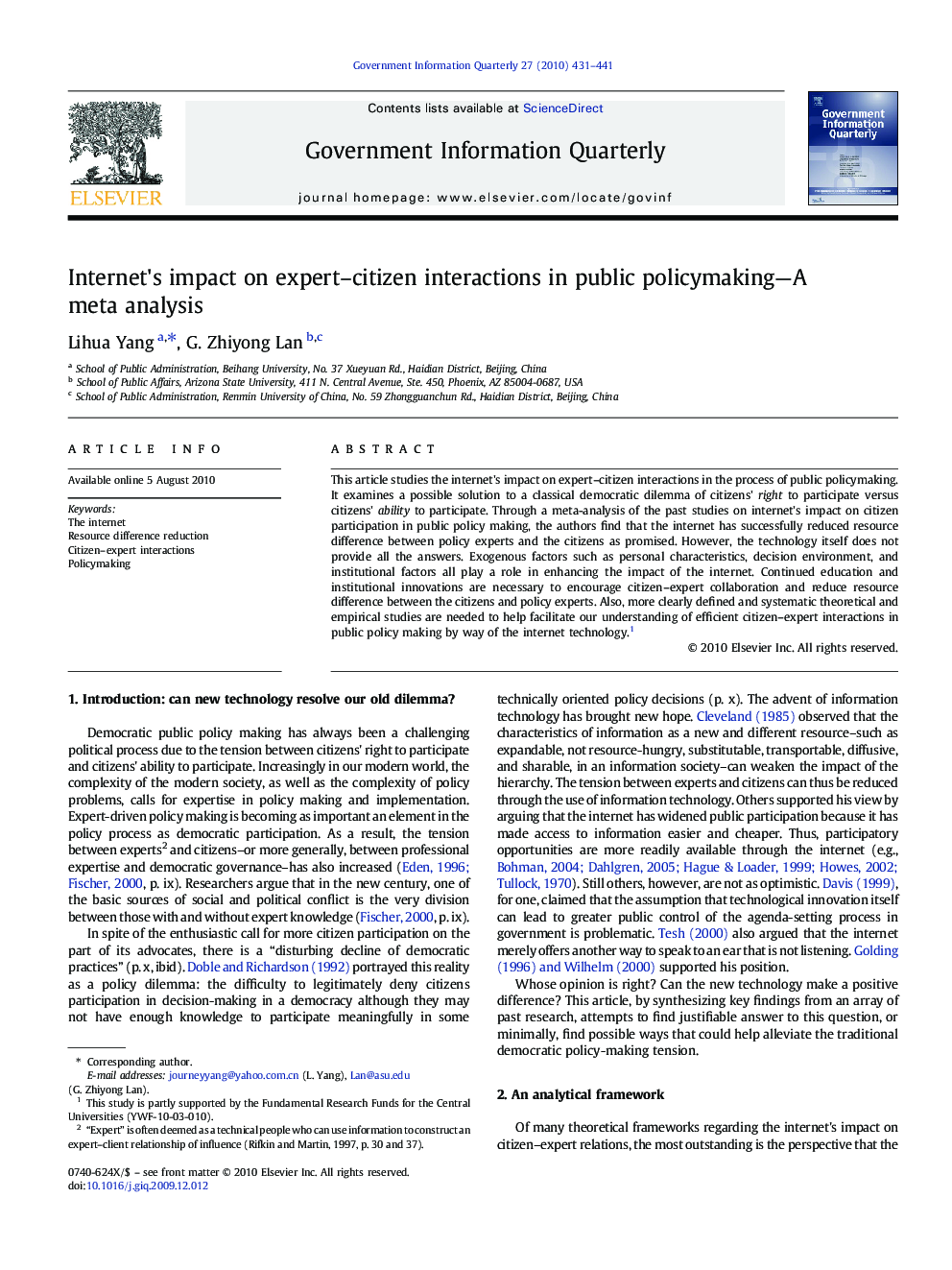| Article ID | Journal | Published Year | Pages | File Type |
|---|---|---|---|---|
| 1024849 | Government Information Quarterly | 2010 | 11 Pages |
This article studies the internet's impact on expert–citizen interactions in the process of public policymaking. It examines a possible solution to a classical democratic dilemma of citizens' right to participate versus citizens' ability to participate. Through a meta-analysis of the past studies on internet's impact on citizen participation in public policy making, the authors find that the internet has successfully reduced resource difference between policy experts and the citizens as promised. However, the technology itself does not provide all the answers. Exogenous factors such as personal characteristics, decision environment, and institutional factors all play a role in enhancing the impact of the internet. Continued education and institutional innovations are necessary to encourage citizen–expert collaboration and reduce resource difference between the citizens and policy experts. Also, more clearly defined and systematic theoretical and empirical studies are needed to help facilitate our understanding of efficient citizen–expert interactions in public policy making by way of the internet technology. 1
